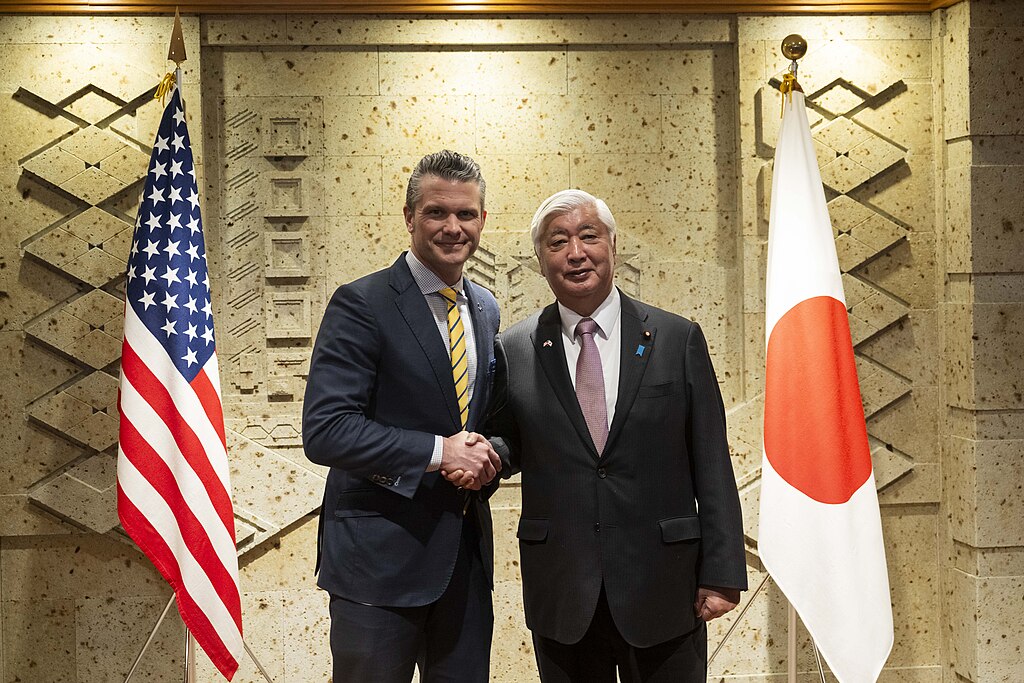North Korea has strongly condemned a recent agreement between the United States and Japan to co-produce air-to-air missiles, calling it a serious threat to regional stability. According to North Korea’s state-run KCNA news agency, the deal signals Washington’s ongoing efforts to militarize Japan and escalate tensions in the Asia-Pacific.
The criticism follows U.S. Defense Secretary Pete Hegseth’s visit to Tokyo on Sunday, where he and Japanese officials agreed to accelerate the joint production of the AIM-120 beyond-visual-range air-to-air missile. The missile is widely used in military aircraft engaged in regular drills across the region—activities North Korea already views as provocative.
An unnamed senior official from North Korea’s Defence Ministry warned that the move adds “a new element of strategic instability” to the region. While the statement did not specifically name any countries, it clearly pointed to rising tensions involving China and North Korea. The official also argued that the U.S. has long encouraged Japan’s remilitarization, referring to broader U.S. military strategies aimed at countering regional rivals.
Hegseth highlighted Japan’s crucial role in deterring China, particularly around the Taiwan Strait, calling the U.S.-Japan alliance a “cornerstone” of regional security. This stance contrasts with previous criticisms of Japan by U.S. leaders for not contributing enough to the American military presence.
In response, North Korea vowed to strengthen its own military deterrence to address what it sees as growing instability. The statement underscores Pyongyang’s view that enhanced U.S.-Japan defense ties are a direct threat to its national security and a signal of shifting military dynamics in Northeast Asia.
The missile pact is the latest development in a rapidly evolving security landscape, where regional powers are aligning amid rising geopolitical tensions.



 Jack Lang Resigns as Head of Arab World Institute Amid Epstein Controversy
Jack Lang Resigns as Head of Arab World Institute Amid Epstein Controversy  Trump Backs Nexstar–Tegna Merger Amid Shifting U.S. Media Landscape
Trump Backs Nexstar–Tegna Merger Amid Shifting U.S. Media Landscape  Ohio Man Indicted for Alleged Threat Against Vice President JD Vance, Faces Additional Federal Charges
Ohio Man Indicted for Alleged Threat Against Vice President JD Vance, Faces Additional Federal Charges  Trump Lifts 25% Tariff on Indian Goods in Strategic U.S.–India Trade and Energy Deal
Trump Lifts 25% Tariff on Indian Goods in Strategic U.S.–India Trade and Energy Deal  Pentagon Ends Military Education Programs With Harvard University
Pentagon Ends Military Education Programs With Harvard University  Trump Allegedly Sought Airport, Penn Station Renaming in Exchange for Hudson River Tunnel Funding
Trump Allegedly Sought Airport, Penn Station Renaming in Exchange for Hudson River Tunnel Funding  Trump Signs “America First Arms Transfer Strategy” to Prioritize U.S. Weapons Sales
Trump Signs “America First Arms Transfer Strategy” to Prioritize U.S. Weapons Sales  U.S. to Begin Paying UN Dues as Financial Crisis Spurs Push for Reforms
U.S. to Begin Paying UN Dues as Financial Crisis Spurs Push for Reforms  Trump’s Inflation Claims Clash With Voters’ Cost-of-Living Reality
Trump’s Inflation Claims Clash With Voters’ Cost-of-Living Reality  Iran–U.S. Nuclear Talks in Oman Face Major Hurdles Amid Rising Regional Tensions
Iran–U.S. Nuclear Talks in Oman Face Major Hurdles Amid Rising Regional Tensions  U.S. Announces Additional $6 Million in Humanitarian Aid to Cuba Amid Oil Sanctions and Fuel Shortages
U.S. Announces Additional $6 Million in Humanitarian Aid to Cuba Amid Oil Sanctions and Fuel Shortages  South Korea Assures U.S. on Trade Deal Commitments Amid Tariff Concerns
South Korea Assures U.S. on Trade Deal Commitments Amid Tariff Concerns  U.S.-India Trade Framework Signals Major Shift in Tariffs, Energy, and Supply Chains
U.S.-India Trade Framework Signals Major Shift in Tariffs, Energy, and Supply Chains  Nighttime Shelling Causes Serious Damage in Russia’s Belgorod Region Near Ukraine Border
Nighttime Shelling Causes Serious Damage in Russia’s Belgorod Region Near Ukraine Border  US Pushes Ukraine-Russia Peace Talks Before Summer Amid Escalating Attacks
US Pushes Ukraine-Russia Peace Talks Before Summer Amid Escalating Attacks  Japan Election 2026: Sanae Takaichi Poised for Landslide Win Despite Record Snowfall
Japan Election 2026: Sanae Takaichi Poised for Landslide Win Despite Record Snowfall 































